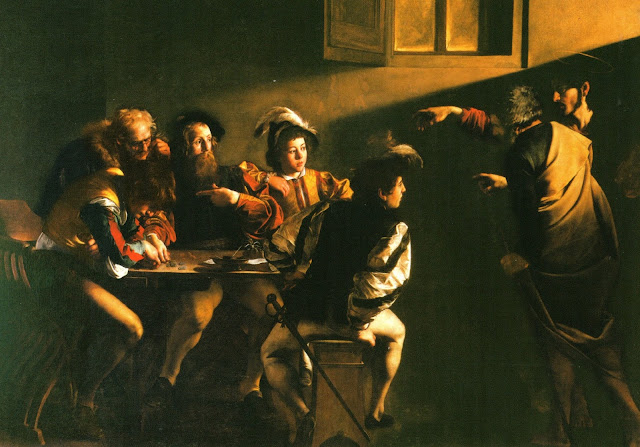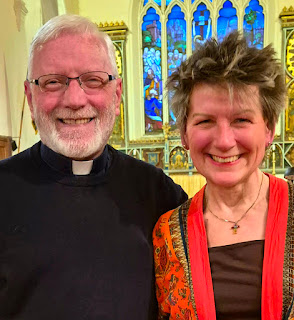Harvest of Gratitude
Harvest Mass. The children excitedly bring their gifts to the altar, gifts for the local food bank. They didn’t buy this food themselves but there is a generosity in their giving. The last little boy to approach is singing out the offertory hymn – “Here I am Lord!” – continues singing as he lays down his gift and as he walks back down the aisle with his Mum who seeks out his hand, but he refuses. He is independent in this moment. Confident.
The song is appropriate because it expresses the true nature of giving. The boy brings more than a tin of food, he brings himself. He is the gift.
I have shingles today, a pain that demands attention but the amazing grace of the Mass lifts me out of myself to be more than I am, to be what I cannot be when I otherwise succumb to the pain, the misery, and a bit of self-pity. The Mass always seems to change me somehow, giving me a confidence and an authority that I do not normally possess, and I can only conclude that it is a genuine experience of being “in persona Christi” – being in the person of Christ. Christ living in me. Christ loving. It is not I who live but Christ who lives in me.
We are in the presence of the infinite and transforming mystery of God and everything to do with this mystery speaks of spiritual strength, power, abundance. The leper Naaman does not simply go into the Jordan river, he plunges into it seven times. There is great strength in this – a plunging, a total immersion in the river of God’s grace. And when the healing is experienced he wants a response that is appropriate, worthy. The response of the one leper out of ten in the Gospel is also the appropriate one – it brings him back to the one thing necessary; it brings him back to a close encounter with Jesus. There is no more distance, no separation.
Perhaps it’s just the way
of things that nine people out of ten, nine times out of ten we get what we
want from God and then we go our own way. The blessings we sought and received
do not bring us closer to Jesus. We receive the desperately needed healing or we
get our Catholic education, and we disappear from the scene until the next
time. It may just be the way of things and I’ve done it myself in different
ways but there is a better way than this. We are better than this.
Here I am Lord. The prophetic Hineni that Leonard Cohen sings of. Here I am to worship, here I am to bow down – words of a hymn.
It’s what Naaman did. When he was cured he wanted to worship God, not just once but throughout his life. And he asked for the soil of Israel to be given, two mule loads. Soil of Israel, Holy Land. The sacredness of land that is often lost to our urban culture.
I am urban, but I have a
strong feeling for the land around the farm where my mother was born. Arriving
in Kiltullagh and into Raford something primal stirs in me, like the effect being
on the sea has. In a dream one night the late Father Roger Rafter came to me wearing
his Pallottine habit and simply said, “tell them about the land!” After that
the word “land” jumps out at me from the Psalms and other Bible readings and I’ve
discovered that the “land” of Israel, its soil is the place where God is
encountered and worshipped. In exile the people heard prophecies in which God
promised to bring them back to their own land, to resettle them on their own
soil. And it was never simply for the sake of their own restoration, but it was
so that they could truly encounter God and worship Him in the proper place.
That’s the significance of Naaman taking home with him the soil of Israel. It would keep him close to God.
Gratitude is at the heart of this encounter, this worship. It is the soil upon which true worship is founded and it is no longer a physical location but a spiritual one.
“Woman,” Jesus replied, “believe me, a time is coming when you will worship the Father neither on this mountain nor in Jerusalem. You Samaritans worship what you do not know; we worship what we do know, for salvation is from the Jews. Yet a time is coming and has now come when the true worshipers will worship the Father in the Spirit and in truth, for they are the kind of worshipers the Father seeks. God is spirit, and his worshipers must worship in the Spirit and in truth.” (John 4:22-24 - NIV)
It is given us primarily in the Eucharist, the prayer of worship, gratitude, and sacrifice in which we have communion with God and each other. It is our Holy Land, the place of our true belonging and our becoming. Become what you receive.
We become gratitude, not just expressing grateful, thankful words or feelings but we become it in our very essence. My late sister Maura had it. Her capacity for admiration, wonder and gratitude was infectious. It was her very nature and even when life presented her with serious challenges she never lost the capacity for the joy that is the child of a grateful spirit.
It’s what I aspire to. I find myself praying for the grace to become the innocent child that has not yet learned to be suspicious or to complain. But we bend so easily to complaining. In the movie ‘Hocus Pocus’ one of the witches opens her window to a beautiful day exclaiming something like, “Oh, another beautiful morning!” and going on to say with a sour face, “makes me sick!” Complaining in the midst of beauty is endemic. The grumbling and complaining of the people of Israel kept them at a distance from God and it does the same to us. And we find it so often in our Christian communities, the grinding habit of finding fault and complaining. It really doesn’t belong with us.
Even in the most traumatic moments, when we are left speechless in the face of the horrors in the world we are called to find the face of God, beauty in the midst of what is most ugly. His real Presence that is there on the Cross at Calvary. The Cross is the cry of Christ, the cry of crucified humanity, a cry that descends long into the dark silence before the dawn of victory.
“Pain and suffering have come into your life, but remember pain, sorrow, suffering are but the kiss of Jesus - a sign that you have come so close to Him that He can kiss you.” (Mother Saint Teresa of Kolkata)
The Samaritan leper came that close to Jesus.
Faced with the physical hunger of the multitude and the paucity of the gifts available, Jesus gives thanks for the little, the inadequate and out of His blessing of gratitude the abundance flows. St. Vincent Pallotti concluded his requests to God, his prayers of petition by giving thanks as if God had already granted him what he had prayed for. Gratitude is there from the beginning and not just at the end and it adds weight, depth, and possibility to all our prayers.
An aspect of our Eucharist is to allow the inadequacy of our lives to be taken by Jesus, to be held by Him, to be empowered by His gratitude. We need to surrender our lives into His hands. This is not a lifeless, timid surrender, a simple giving up or resignation. It is a surrender born out of struggle, it is the fruit of an honest wrestling with God and myself, wrestling with my deepest need and desire. And out of all this comes the abundance that is more than enough. Jesus himself is the food for our desire, the abundance for which we yearn.
Hineni! Here I am Lord.




.jpg)


.jpg)



Comments
Post a Comment